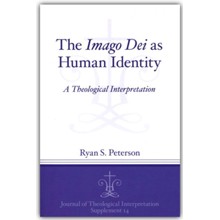Description
Theologians and Old Testament scholars have been at odds with respect to the best interpretation of the
imago Dei.
Theologians have preferred substantialistic (e.g., image as soul or mind) or relational interpretations (e.g., image as relational personhood) and Old Testament scholars have preferred functional interpretations (e.g., image as kingly dominion). The disagreements revolve around a number of exegetical questions. How do we best read Genesis 1 in its literary, historical, and cultural contexts? How should it be read theologically? How should we read Genesis 1 as a canonical text? This book charts a path through these disagreements by offering a dogmatically coherent and exegetically sound canonical interpretation of the image of God. Peterson argues that the fundamental claim of Genesis 1:26–28 is that humanity is created to image God actively in the world. “Made in the image of God” is an identity claim. As such, it tells us about humanity’s relationship with God and the rest of creation, what humanity does in the world, and what humanity is to become. Understanding the imago Dei as human identity has the further advantage of illuminating humanity’s ontology.
Canonically, knowledge of the contours and purpose of human existence develops alongside God’s self-revelation. Tracing this development, Peterson demonstrates the coherence of the OT and NT texts that refer to the image of God. In the NT, Jesus Christ is understood as the realization of God’s image in the world and therefore the fulfillment of the description of humanity’s identity in Genesis 1. In addition to its specific focus on resolving interdisciplinary tensions for Christian interpretation of the
imago Dei
, the argument of the book has important implications for ethics, the doctrine of sin, and the doctrine of revelation.









Reviews
There are no reviews yet.